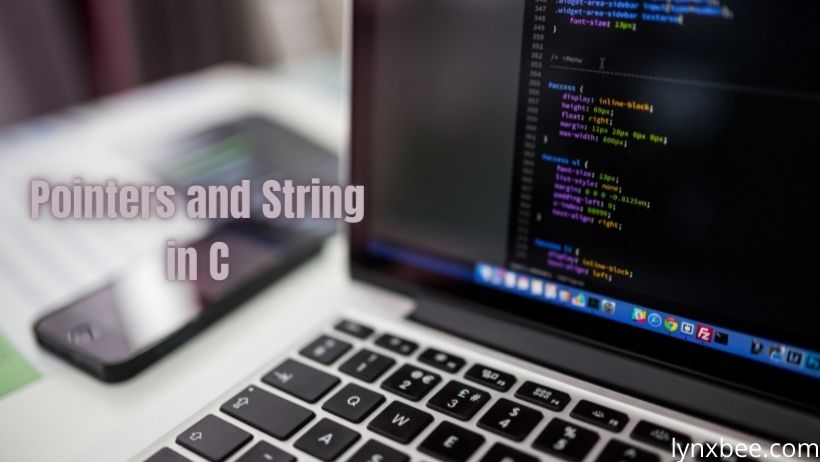In the C programming language, pointers and strings are closely intertwined concepts that form the foundation of many applications. Understanding how they work together is crucial for efficient memory management and manipulation of textual data. This guide explores pointers and strings in C, delves into their relationship, and provides practical examples to help you master these fundamental concepts.
What are Strings in C?
Strings in C are arrays of characters terminated by a null character (\0). They are used to represent text and are stored in contiguous memory locations. Unlike other programming languages, C does not have a dedicated string data type; instead, strings are managed using character arrays and pointers.
Key Features of Strings in C
- Stored as a sequence of characters.
- Terminated by a null character (
\0) to indicate the end. - Accessed using array notation or pointers.
Example of declaring and initializing a string:
char str[] = "Hello, World!";What are Pointers in C?
Pointers are variables that store the memory addresses of other variables. They are a powerful feature in C that allows direct memory access and manipulation.
Key Features of Pointers
- Store memory addresses.
- Support arithmetic operations to traverse memory.
- Essential for dynamic memory allocation and advanced data structures.
Example of declaring and initializing a pointer:
int x = 10;
int *ptr = &x; // Pointer to the memory address of xThe Relationship Between Pointers and Strings
Pointers are often used to manipulate strings in C. Since strings are arrays of characters, a pointer can be used to traverse, modify, or access elements in the string.
Using Pointers to Access Strings
A pointer can point to the first character of a string, and pointer arithmetic can be used to navigate through the string.
Example:
char str[] = "Pointers in C";
char *ptr = str; // Pointer to the first character
while (*ptr != '\0') {
printf("%c", *ptr);
ptr++; // Move to the next character
}This code prints each character of the string by dereferencing the pointer.
How to Work with Strings and Pointers in C
1. Accessing String Elements with Pointers
You can use pointers to access individual characters in a string:
char str[] = "Example";
char *ptr = str;
for (int i = 0; ptr[i] != '\0'; i++) {
printf("%c", ptr[i]);
}2. Modifying Strings with Pointers
Pointers can also be used to modify the contents of a string:
char str[] = "Hello";
char *ptr = str;
ptr[0] = 'M';
printf("%s", str); // Outputs "Mello"3. Passing Strings to Functions Using Pointers
When passing strings to functions, pointers are used to avoid copying the entire array:
void printString(char *str) {
while (*str != '\0') {
printf("%c", *str);
str++;
}
}
int main() {
char msg[] = "Hello, Pointers!";
printString(msg);
return 0;
}Common Issues and Solutions
1. Forgetting the Null Terminator
Strings in C must be null-terminated. Without a null character, functions like printf may continue reading beyond the intended memory:
char str[5] = {'H', 'e', 'l', 'l', 'o'}; // No null characterSolution: Always ensure the null character is added:
char str[6] = {'H', 'e', 'l', 'l', 'o', '\0'};2. Dangling Pointers
Accessing memory that has been freed or is out of scope leads to undefined behavior.
Solution: Set pointers to NULL after freeing memory:
free(ptr);
ptr = NULL;3. Buffer Overflow
Writing beyond the allocated memory of a string can cause crashes.
Solution: Use safe string functions and allocate enough memory.
Use Cases for Pointers and Strings
- Dynamic String Manipulation: Allocate and manage strings dynamically using
malloc. - Parsing Input: Use pointers to traverse and parse user input.
- Implementing String Functions: Create custom string manipulation functions like
strlen,strcpy, andstrcmpusing pointers.
Conclusion
Pointers and strings in C are integral for text manipulation and efficient memory usage. By understanding how to use pointers to access, modify, and pass strings, you can unlock the full potential of C programming. Mastering these concepts not only improves your coding skills but also provides a foundation for working with more advanced data structures and algorithms.
